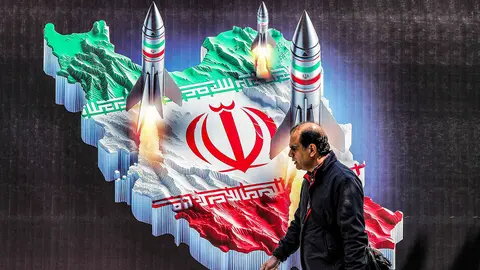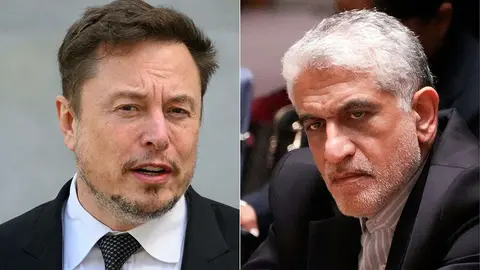Maryam Rajavi calls for regime change in Iran
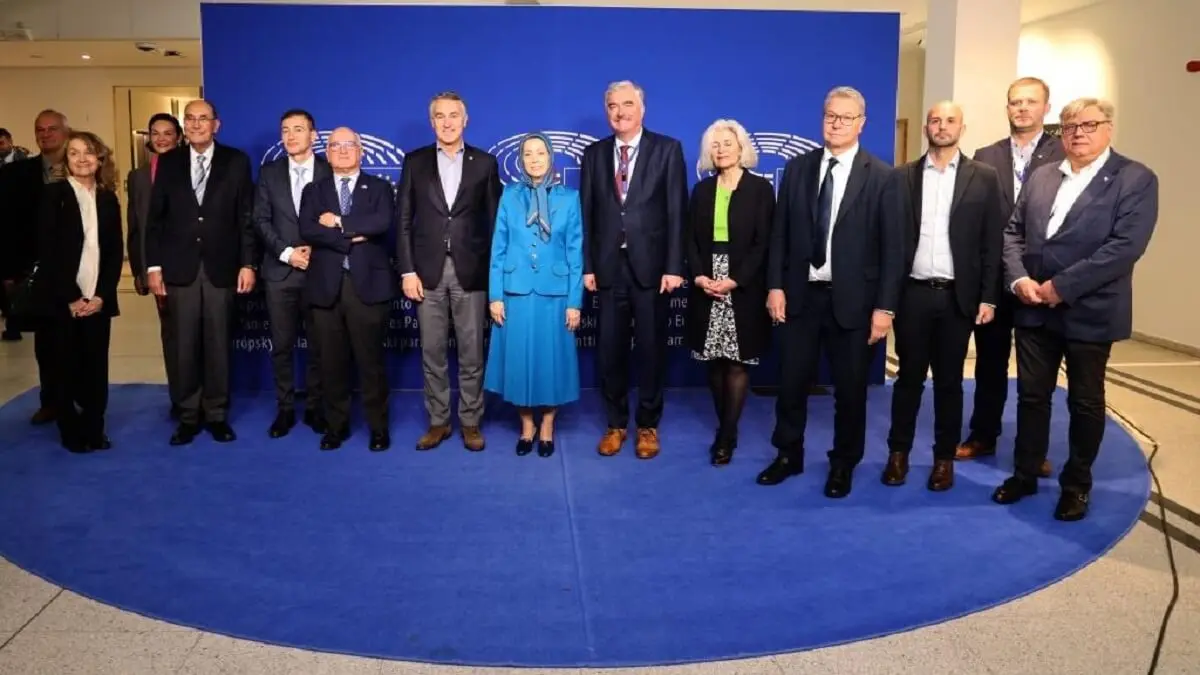
The elected President of the National Council of Resistance of Iran (NCRI), Maryam Rajavi, was invited to address a large meeting in the European Parliament.
Many Members of the European Parliament from different political groups attended this meeting and discussed with her the current situation in Iran and the prospects for democratic change in the country.
Maryam Rajavi stressed the need for regime change in Iran and the role of organised resistance. She praised the Parliament's previous efforts, including resolutions in favour of designating the Islamic Revolutionary Guard Corps (IRGC) as a terrorist organisation, but regretted the lack of implementation. She criticised the EU's failure to activate the roll-back mechanism to counter the regime's violations of international agreements, particularly with regard to its nuclear activities.
Ms. Rajavi highlighted the clerical regime's history of oppression, citing over 100,000 political executions and a sharp increase in executions under the current administration. She stressed that the Iranian regime prioritises the export of fundamentalism, terrorism and warmongering to ensure its survival. However, she argued that the regime's ultimate war is against its own people, as evidenced by the widespread protests and uprisings over the years.
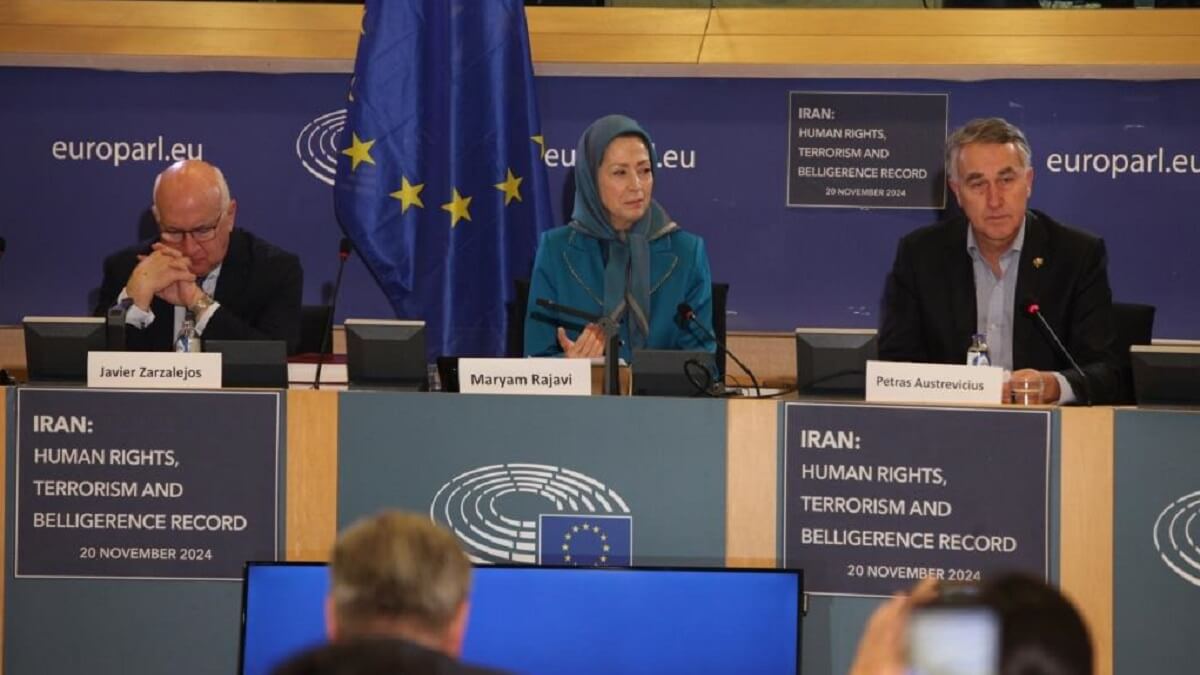
The road to democratic change
Ms. Rajavi asserted that democratic change in Iran is possible through the Iranian people and their organised resistance. She outlined five key elements:
1. Resistance Units
Led by courageous women, the resistance units are dismantling the regime's oppression. Their activities were presented during the World Summit for a Free Iran in July 2024.
2. The People's Mujahedin Organisation of Iran (PMOI)
With a 60-year history of resistance to the dictatorship, the PMOI is a well-organised movement recognised for its role in exposing the regime's secrets, including its nuclear ambitions.
3. The National Council of Resistance of Iran (NCRI)
A democratic coalition of opposition groups that includes many academic and cultural figures, the NCRI advocates diverse freedoms, equality and a secular, non-nuclear Iran. It is the oldest coalition in Iranian political history and has made significant sacrifices for its cause.
4. Diaspora support
Iranian expatriates and political exiles support the resistance movement, organised through a network of 320 associations around the world. The movement operates independently and finances its activities through contributions from members and supporters.
5. Global support for the 10-point plan for a democratic future in Iran
This support includes:
(a) Declarations by the majority of 34 legislative bodies in Europe and America, and parliaments in the Arab world.
b) In addition, a statement signed by 137 former world leaders and 80 Nobel laureates calling for the establishment of a democratic republic and clearly stating that there is no place in Iran for a religious dictatorship or monarchy.
A vision for Iran's future She outlined the IRNC's plan for the transfer of power after the fall of the regime: an interim government will organise elections for a Constituent Assembly within six months, after which sovereignty will be transferred to the people's representatives. This approach will ensure a peaceful transition to democracy.
She rejected the regime's propaganda about the absence of a viable alternative, the inevitability of chaos or the partition of Iran, and stressed that millions of Iranians abroad are ready to help rebuild the country.
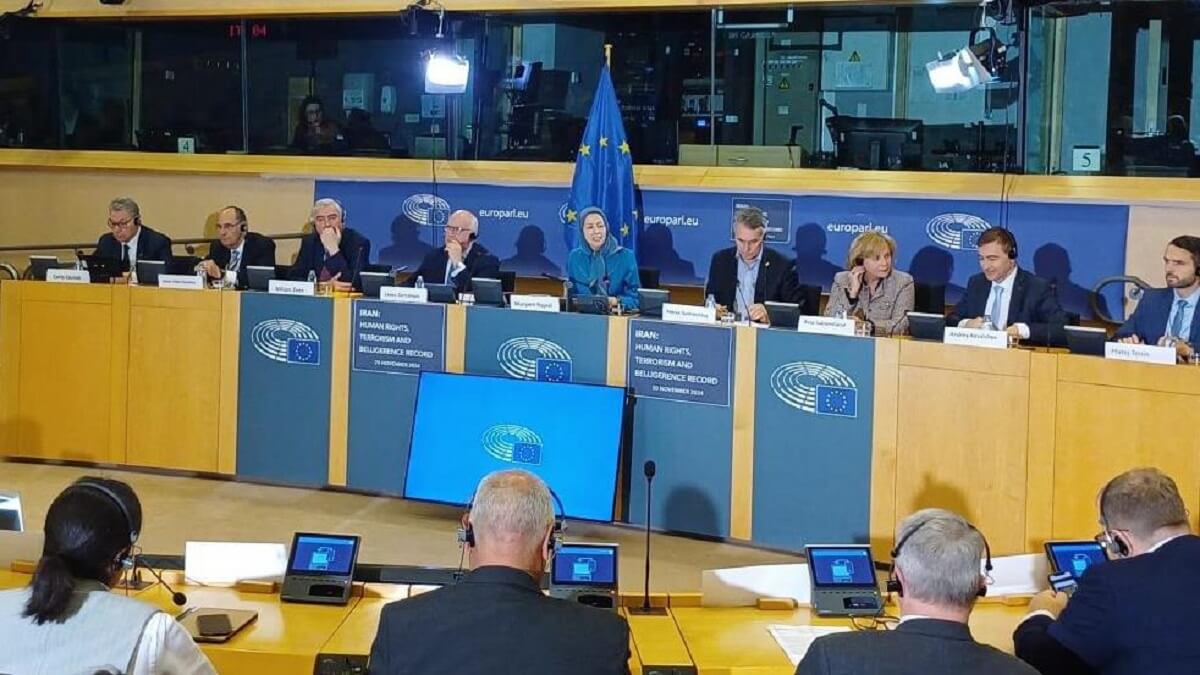
A call for a decisive Western policy
Ms Rajavi criticised the West's decades-long policy of ignoring Iran's organised resistance. She called for an end to complacency and urged the EU to take a firm stand against this religious fascism. Supporting the Iranian people's desire for regime change and democracy is essential for regional and global stability.
She congratulated the new leadership of the European Union and expressed the hope that the EU would adopt a firm policy towards the terrorist and hostile regime of the mullahs, rejecting all forms of appeasement.
She concluded by reaffirming the Resistance's commitment to freedom and equality, as expressed in the slogan: ‘No compulsory hijab, no compulsory religion and no compulsory government’.

